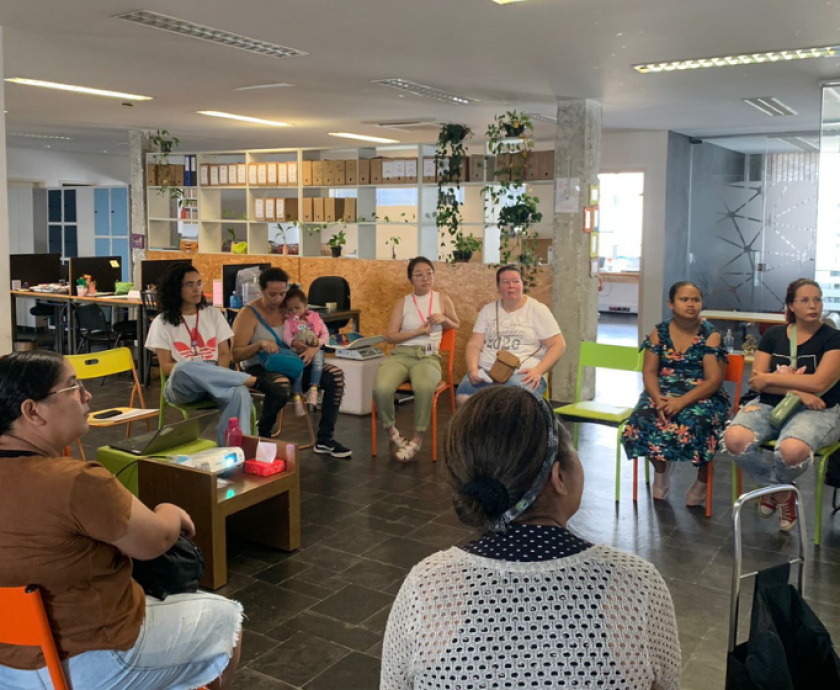NGO – What Does It Mean?
Have you ever stopped to think about how an NGO works? The acronym stands for Non-Governmental Organization—a private, non-profit, and government-independent entity dedicated to social, cultural, environmental, humanitarian, educational, health-related, and other causes.
The Third Sector
An NGO is part of what we call the third sector—organizations that carry out activities for the benefit of society and without the goal of making a profit. This concept originated in the United States and classifies the first sector as the State, and the second sector as private entities with a profit motive.
According to Vera Oliveira, founder and executive director of Instituto C, the second and third sectors have very similar operational structures. “In terms of structure, there isn’t much difference between an NGO and a company. The main difference is what we ‘sell’—in our case, it’s social impact,” she said in an interview published on our blog in May 2022.
In fact, in 2022, Instituto C received the Best NGOs Award for the sixth consecutive time. This award honors the 100 best non-profit organizations in Brazil’s third sector. Since 2017, the annual celebration has become one of the most important in the sector, receiving over 1,000 applications in 2021 alone. Instituto C is part of a select group of seven Brazilian organizations to be featured on the list in every single edition of the award.
How Does an NGO Work?
The operation of an NGO is based on mobilizing financial, human, and material resources to achieve its goals and drive positive change in society. Generally, income comes from donations, sponsorships, and agreements with governments or other institutions.
A key part of any NGO is the volunteer work of people committed to its mission, which helps expand its reach. But beyond that, an NGO also has expenses to cover—such as taxes, salaries, suppliers, and rent.
At Instituto C, for example, there are nearly 30 salaried employees, all officially registered and receiving legally guaranteed benefits. According to data from the Institute for Applied Economic Research (Ipea), NGOs in Brazil formally employ around 3 million people.
One of Instituto C’s most important sources of income is the Nota Fiscal Paulista (São Paulo State Invoice Program). When you request your CPF (Individual Taxpayer Registry) on a purchase, the business is required to declare the sale and pay the corresponding tax to the government.
Initially, the program offered significant credit rewards to consumers. Over time, the government revised the parameters, shifting the benefit to support NGOs, reducing the amount received by consumers. Today, donations through Nota Fiscal Paulista account for 16% of Instituto C’s annual revenue.
The Role of NGOs
Independently, NGOs aim to complement government actions and address social needs that are unmet or require additional assistance. Their work spans a wide range of areas, including:
-
Social assistance
-
Education
-
Health
-
Environment
-
Human rights
-
Emergency humanitarian aid
Instituto C – Children, Care, Citizenship
Founded in 2011, Instituto C began by serving families in socially vulnerable situations with children suffering from chronic or severe illnesses. Since then, its projects have expanded to embrace other causes—such as early childhood development, with a focus on prevention and creating environments of care, protection, and stimulation to ensure healthy growth.
In 2021, Instituto C merged its three core projects—PAF, Educação em Rede, and Primeira Infância—into a comprehensive program that provides holistic solutions to the diverse social demands faced by vulnerable families, delivered through Social Service Hubs across São Paulo.
Families in the program are supported by a multidisciplinary team in the fields of psychology, education, nutrition, income generation, and social services, who work together to address needs and prioritize the families’ path to autonomy.
The Importance of NGOs
NGOs are essential change agents, mobilizing resources and efforts for crucial and often overlooked causes. They complement public services, meet specific societal needs, defend rights, and contribute to building a more inclusive, aware, and sustainable society.
“Instituto C delivers social impact—and that product is returned to society. Everyone benefits,” said Vera.




